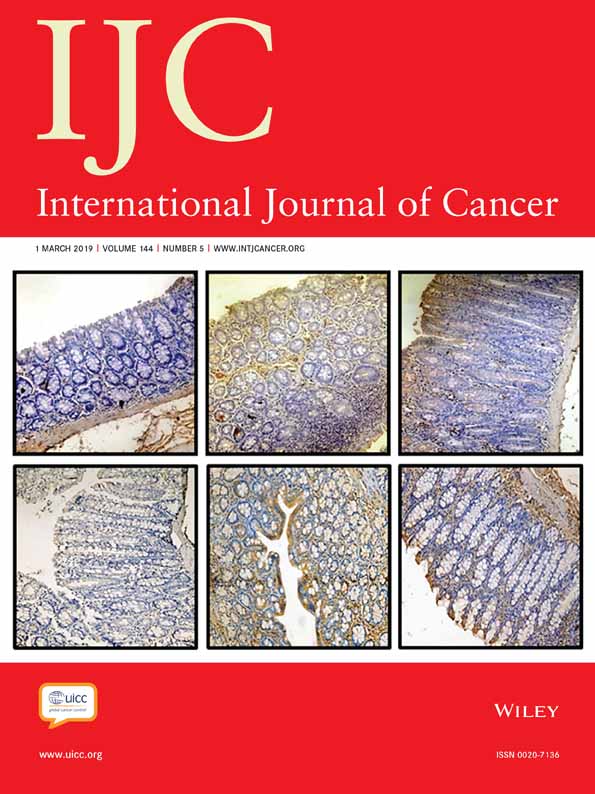TERT promoter mutation subtypes and survival in stage I and II melanoma patients
Abstract
Mutations within the promoter of gene encoding telomerase reverse transcriptase subunit are frequent in many cancers including melanoma. Previously, the TERT promoter mutations were shown to associate with markers of poor outcome and reduced survival in patients with primary melanoma. In this study, we investigated the impact of the subtypes of TERT mutations on disease-free and melanoma-specific survival in 287 patients with stage I/II nonacral melanoma. Our results showed that of the three TERT promoter mutation subtypes, in multivariate models, the −138/−139 CC > TT tandem mutation associated with worst disease-free and melanoma-specific survival. In particular, in combination with BRAF/NRAS mutations, the −138/−139 CC > TT TERT promoter mutation associated with statistically significant poor disease-free and melanoma-specific survival with hazard ratios of 6.04 (95% CI 2.03–17.94, p = 0.001) and 12.59 (95% CI 2.18–72.70, p = 0.005), respectively. In contrast to the survival data, luciferase assays showed that the highest activity was observed in experiments with a promoter construct with −124 C > T mutation followed by the −138/−139 CC > TT and −146 C > T mutations, which showed similar activity. Based on previous reports, we speculate that the tandem mutation probably leads to greater genomic instability than the common TERT promoter mutations, hence the association with worst survival. However, the results from the study are only preliminary with limited patient data, therefore, require a cautious interpretation. The observations in this study, if confirmed, could have implications for melanoma patients treated with MAP-kinase inhibitors.
Abstract
What's new?
Mutations in the promoter of the telomerase reverse transcriptase (TERT) gene are associated with poor outcome and reduced survival in different cancers. Here, subtypes of these mutations were investigated for their impact on survival specifically in melanoma. Among patients with stage I/II melanoma, those with the −138/−139 CC > TT TERT alteration, which occurs primarily in skin cancers, showed the poorest disease-free and melanoma-specific survival. The impact on survival was significantly worsened when the −138/−139 CC > TT TERT alteration was combined with BRAF/NRAS mutations. The findings could have implications for melanoma patients treated with MAP-kinase inhibitors, which interact with BRAF/NRAS signaling networks.




